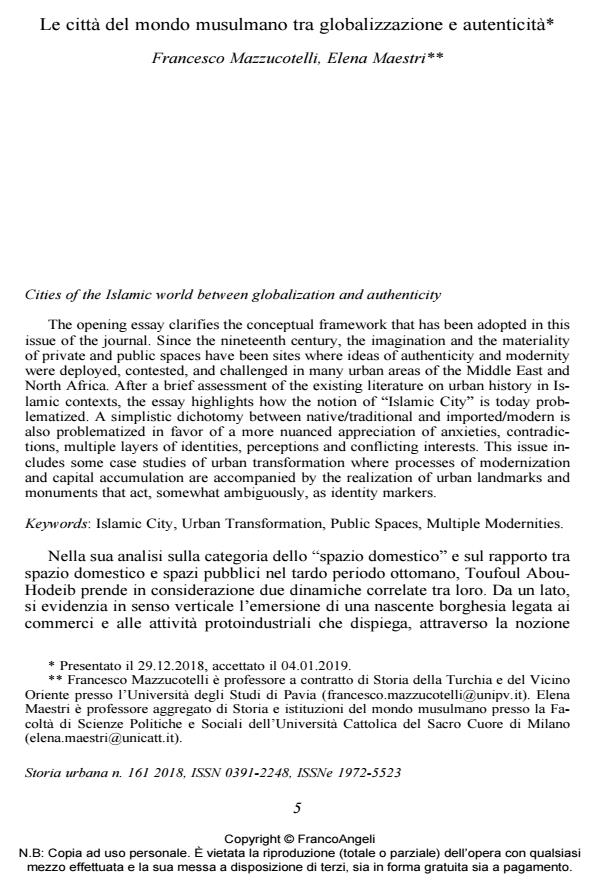Cities of the Islamic world between globalization and authenticity
Journal title STORIA URBANA
Author/s Francesco Mazzucotelli, Elena Maestri
Publishing Year 2019 Issue 2018/161
Language Italian Pages 10 P. 5-14 File size 150 KB
DOI 10.3280/SU2018-161001
DOI is like a bar code for intellectual property: to have more infomation
click here
Below, you can see the article first page
If you want to buy this article in PDF format, you can do it, following the instructions to buy download credits

FrancoAngeli is member of Publishers International Linking Association, Inc (PILA), a not-for-profit association which run the CrossRef service enabling links to and from online scholarly content.
The opening essay clarifies the conceptual framework that has been adopted in this issue of the journal. Since the nineteenth century, the imagination and the materiality of private and public spaces have been sites where ideas of authenticity and modernity were deployed, contested, and challenged in many urban areas of the Middle East and North Africa. After a brief assessment of the existing literature on urban history in Is- lamic contexts, the essay highlights how the notion of "Islamic City" is today prob- lematized. A simplistic dichotomy between native/traditional and imported/modern is also problematized in favor of a more nuanced appreciation of anxieties, contradic- tions, multiple layers of identities, perceptions and conflicting interests. This issue in- cludes some case studies of urban transformation where processes of modernization and capital accumulation are accompanied by the realization of urban landmarks and monuments that act, somewhat ambiguously, as identity markers.
Keywords: Islamic City, Urban Transformation, Public Spaces, Multiple Modernities.
Francesco Mazzucotelli, Elena Maestri, Le città del mondo musulmano tra globalizzazione e autenticità in "STORIA URBANA " 161/2018, pp 5-14, DOI: 10.3280/SU2018-161001